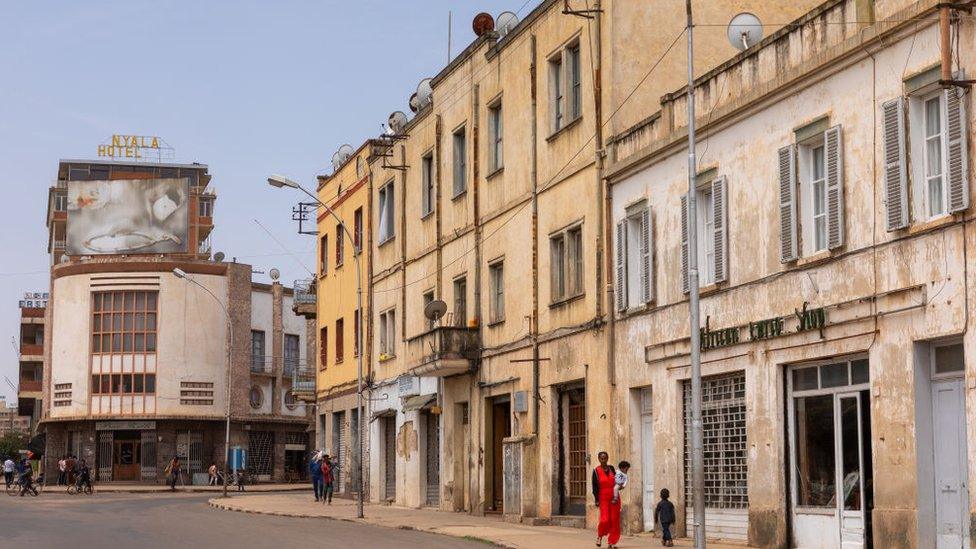Eritrea media guide
- Published
This page is no longer being updated. It was last updated on 25 April 2023

Asmara was declared a Unesco World Heritage Site in 2017 for its well-preserved modernist architecture
Eritrea is the only African country to have no privately-owned media.
There is no room for freely reported news and the media are subject to the whim of the president, says Reporters Without Borders (RSF). In 2021, RSF rated Eritrea as having the worst overall press freedom in the world, even lower than North Korea.
The government has held a monopoly over broadcasting since independence. The few privately-owned newspapers were closed in 2001 as part of a crackdown on the opposition.
Outlets run by Eritreans abroad provide alternative news, but their reach and influence inside Eritrea are limited. Exile broadcaster Radio Erena operates from Paris.
Ethiopia used to provide transmission facilities for dissident groups but this stopped following the signing of the 2018 peace deal.
There were 248,000 internet users by December 2021, comprising just 6.8% of the population (InternetWorldStats.com) - the second-lowest penetration rate in Africa after Western Sahara.
Most Eritreans on Facebook and Twitter are based outside the country. Similarly, online forums are based abroad, mainly in Europe, Australia and the US.
Press/Online
Hadas Eritrea, external - government-owned, published three days a week
Eritrea Profile, external - government-owned weekly, in English
Awate.com, external - US-based opposition news website
Shabait.com, external - Ministry of Information website
Television
ERISAT, external (Eritrean Satellite Television) - the largest diaspora-based independent TV, broadcasts in multiple language
Eri TV, external - state-run, operates two channels with programmes in Tigrinya, Tigre, Arabic and English
Assenna TV, external (ATV) - London-based satellite station
Radio
Voice of the Broad Masses of Eritrea (Dimtsi Hafash) - state-run, operates two networks, programmes in nine languages
Zara FM - state-run, music-based network
Radio Erena, external - operates from Paris with support from media freedom group Reporters Without Borders (RSF)
News agency
Erina (Eritrean News Agency) - state-run